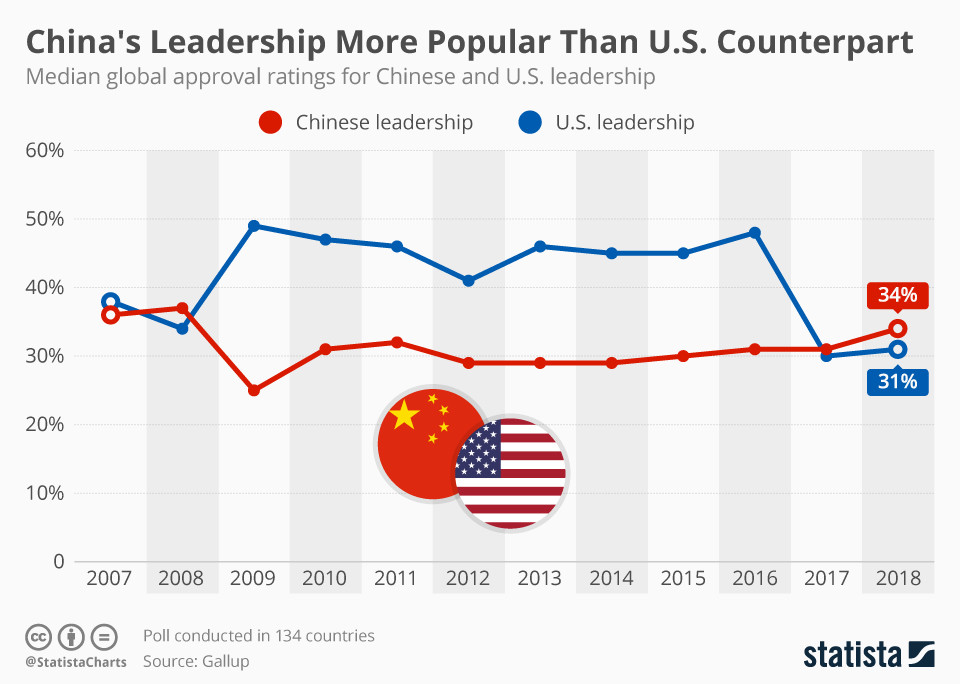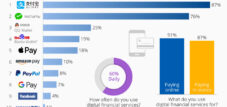Seit 2017 ist es eine Tatsache: Die chinesische Führung hat weltweit höhere durchschnittliche Beliebtheitswerte als ihr amerikanisches Pendant. Während der Abstand 2017 noch sehr gering war, vergrößerte er sich im Vorjahr auf drei Prozentpunkte, wie Gallup berichtet.
Das letzte Mal, dass die USA auf der ganzen Welt so unbeliebt waren, war während der Finanzkrise 2008. Aber selbst dann war die Zustimmung der US-Führung höher als die des aktuellen Trump-Kabinetts, das Anfang 2017 sein Amt antrat. China hat sich in Afrika hohe Bewertungen verdient, wo das Land in den letzten zehn Jahren große Summen investiert hat. Die Zustimmungswerte in der Heimatregion lagen auf dem Niveau des globalen Durchschnittsergebnisses von 34 Prozent und waren in Europa und Amerika etwas niedriger.
Doch auch mexikanische Staatsbürger, deren Land mit der Trump-Administration über das Handelsabkommen NAFTA und den Bau einer Grenzmauer in Konflikt geraten ist, bewerteten China im vergangenen Jahr deutlich höher, ebenso wie Bürger Venezuelas.
It’s been a fact since 2017: The Chinese leadership has higher median approval ratings around the world than its U.S. counterpart. While the gap was minuscule in 2017, it widened in the previous year to three percentage points, as reported by Gallup.
The last time the U.S. was this unpopular around the world was during the financial crisis in 2008. But even then, the U.S. leadership’s approval rating was higher than any of those of the current Trump cabinet, which assumed office in early 2017. China has earned high ratings in Africa, where the country has invested large sums in the past decade. Approval ratings in its home region were on par with the median global result of 34 percent and were somewhat lower in Europe and the Americas.
Yet, Mexican citizens, whose country has been at loggerheads with the Trump administration over trade deal NAFTA and the construction of a border wall, also rated China significantly higher in the past year, as did citizens of Venezuela.


